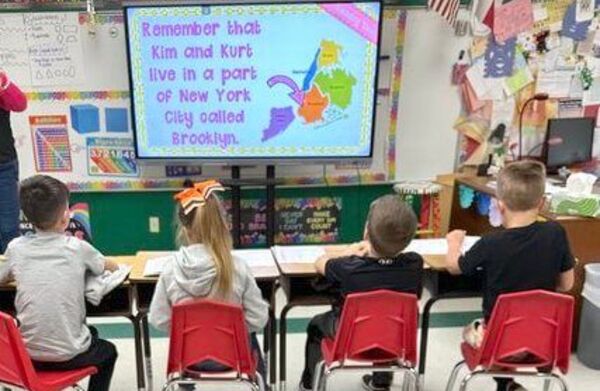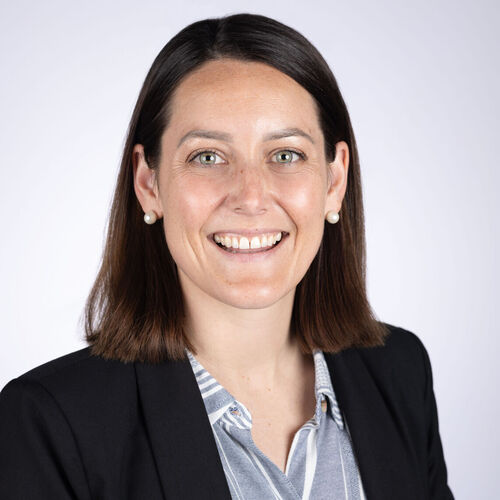Posted on
Reimagining the field experience at UMSL
It is a strange fact of teacher education in the U.S. that pre-service “field experiences” too often require aspiring teachers to sit in the back of classrooms, sometimes in the very same schools and school districts where teacher-candidates finished high school – thereby missing powerful opportunities for practice and for understanding community contexts different from their own.
I recently visited the University of Missouri-St. Louis (UMSL) College of Education, which has reimagined the traditional field experience, under the leadership of Deans for Impact member Carole Basile. Anchored by a commitment to preparing teachers who will positively impact student learning and growth, Dean Basile and her team shifted the early field experiences that precede student teaching from K-12 classrooms to community agencies located throughout the St. Louis metro area. Last spring, over 400 teacher-candidates worked with youth in over a dozen different community agencies, including Mission: St. Louis,Girls Inc., and the YMCA. The intended purpose of this shift was threefold:
- To prepare candidates to impact student learning across an array of educational settings. Rather than sit at the back of K-12 classrooms, teacher-candidates provide direct academic support and instruction to small groups of students, giving candidates practical, hands-on experience early in their preparation.
- To broaden candidates’ understanding of the communities where their students grow up. The vast majority of UMSL’s teacher-candidates are commuters; many of them are working adults who would normally choose clinical placements close to their homes. UMSL’s community agency process forces candidates to cross geographical boundaries and gain experience bridging neighborhoods and cultural contexts.
- To engage candidates with resources and services that exist outside of schools. If candidates are familiar with these resources, it increases the likelihood they will use them to support student learning once the candidates become full-time teachers of record.
UMSL is not the only educator-preparation program that has shifted required field experiences from preK-12 classrooms to community agencies in recent years. But UMSL’s example may ultimately offer data-informed insights and empirical validation of this promising idea. Why?
Focus on student learning. UMSL College of Education staff and faculty conceive of educator preparation not as a series of courses and clinical placements, but as a continuum of experiences rooted in a commitment to student learning. Although still nascent, the community-agency program will create opportunities for candidates to collect and assess evidence of student learning early in their preparation before they become student teachers. One agency reports seeing three months of reading growth for every month that students are with them, due partly to the involvement of UMSL teacher candidates. How does a community-agency experience enable candidates to approach and positively impact student learning? UMSL staff and faculty want to be able to answer this question.
Commitment to continuously improving program quality. The UMSL College of Education has built an assessment system that integrates data from multiple points in the educator-preparation program. A new position, currently being filled, will be charged with using the assessment system as one tool to evaluate program quality and effectiveness. Does the community agency experience lead to better candidate outcomes? Does it lead to more confident and skilled new teachers? UMSL may be able to test that.
Scale. As the largest provider of new teachers in the state of Missouri, UMSL has a wide reach and hundreds of candidates moving through the community agency experience each semester. The scale of UMSL’s program may lead to empirical study of program components. Just as importantly, it will lead to large numbers of new teachers with a breadth of experiences working in a variety of educational contexts.
“We tried to redesign our educator preparation model from the candidate experience out, not the faculty experience in,” says Dean Basile. The community-agency program is just one component of that reimagined model. Refining the program and testing its impact represent important work to come. But UMSL is moving.
“Colleges of ed need to think differently,” a faculty member told me during the visit. “Something flipped here, and people are willing to try new things.”
Editor’s Note: This post is the first in an ongoing series about the educator-preparation programs led by Deans for Impact members. The posts reflect insights from Deans for Impact Learning Tours, multi-day visits by staff and member deans to programs led by our members. These visits are opportunities for transparent discussion about the triumphs and the challenges involved in implementing the guiding principles of Deans for Impact.
Related Stories:


Blog
Delivering on the Promise of High-Impact Tutoring
Last summer, President Biden called upon our country to deliver 250,000 tutors...
March 30, 2023

Blog
Q&A with Dr. Natalie Bolton: How UMSL is aligning around learning science
For the last two years, faculty and staff at the University of Missouri—St. Louis have redesigned...
October 19, 2021

